Learn how to use subordinating conjunctions to create complex sentences. Complex sentences are made up of an independent clause and one or more dependent clauses. The independent clause can stand on its own as a complete sentence, but the dependent clause cannot. Subordinating conjunctions help to connect the independent and dependent clauses, and they can be used to show a variety of relationships between the clauses.
Tag: sentence
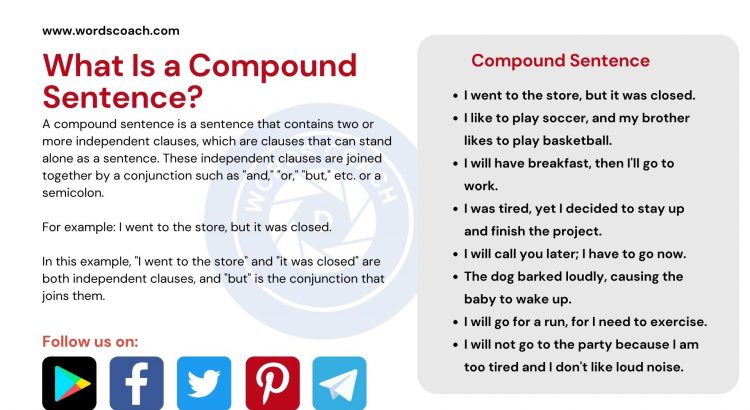
Compound Sentences
A compound sentence is one that has two or more independent clauses connected by a coordinating conjunction.
What Is a Compound Sentence?
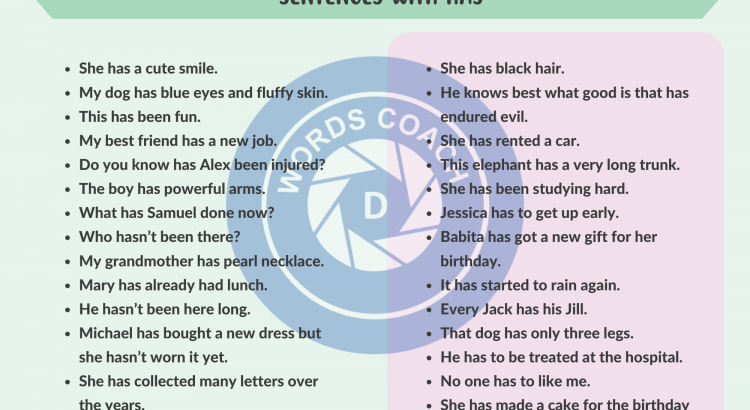
50+ Sentences with HAS
We use ‘has’ to show possession or ownership of singular objects. Has is used with he, she, and it.
50+ Sentences with HAS

200+ Examples Degrees Of Comparison List
Examples Degrees Of Comparison:
Degrees of Comparison are used when we compare a person or thing with another. Degrees of Comparison are applicable only to Adverbs and Adjectives.
Degrees of Comparison add variations to the sentences. A most familiar example of degrees i.e. good < better < best. The degree is increasing from good to best. 200+ Examples Degrees Of Comparison List
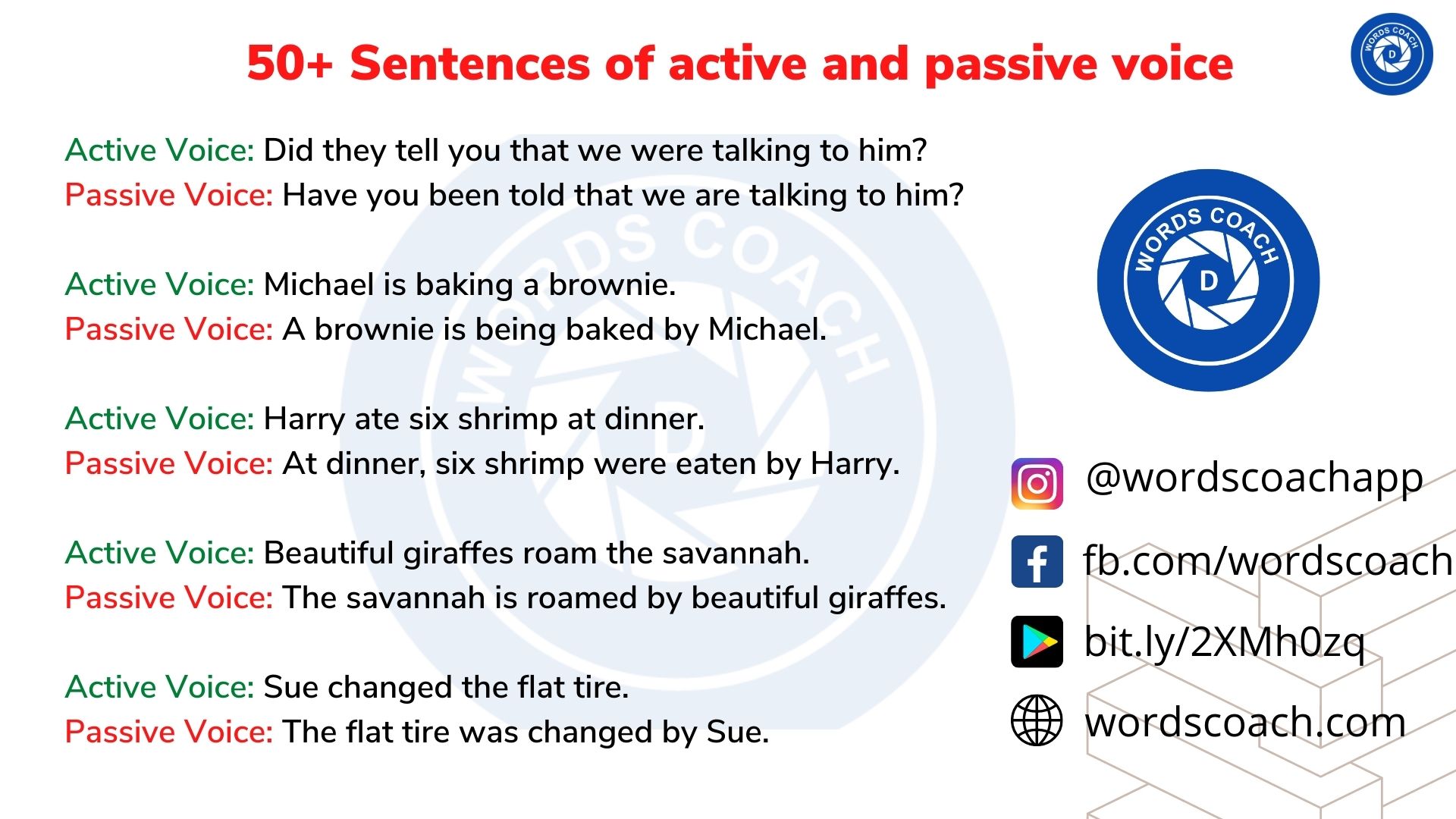
50+ Sentences of active and passive voice
50+ Sentences of active and passive voice
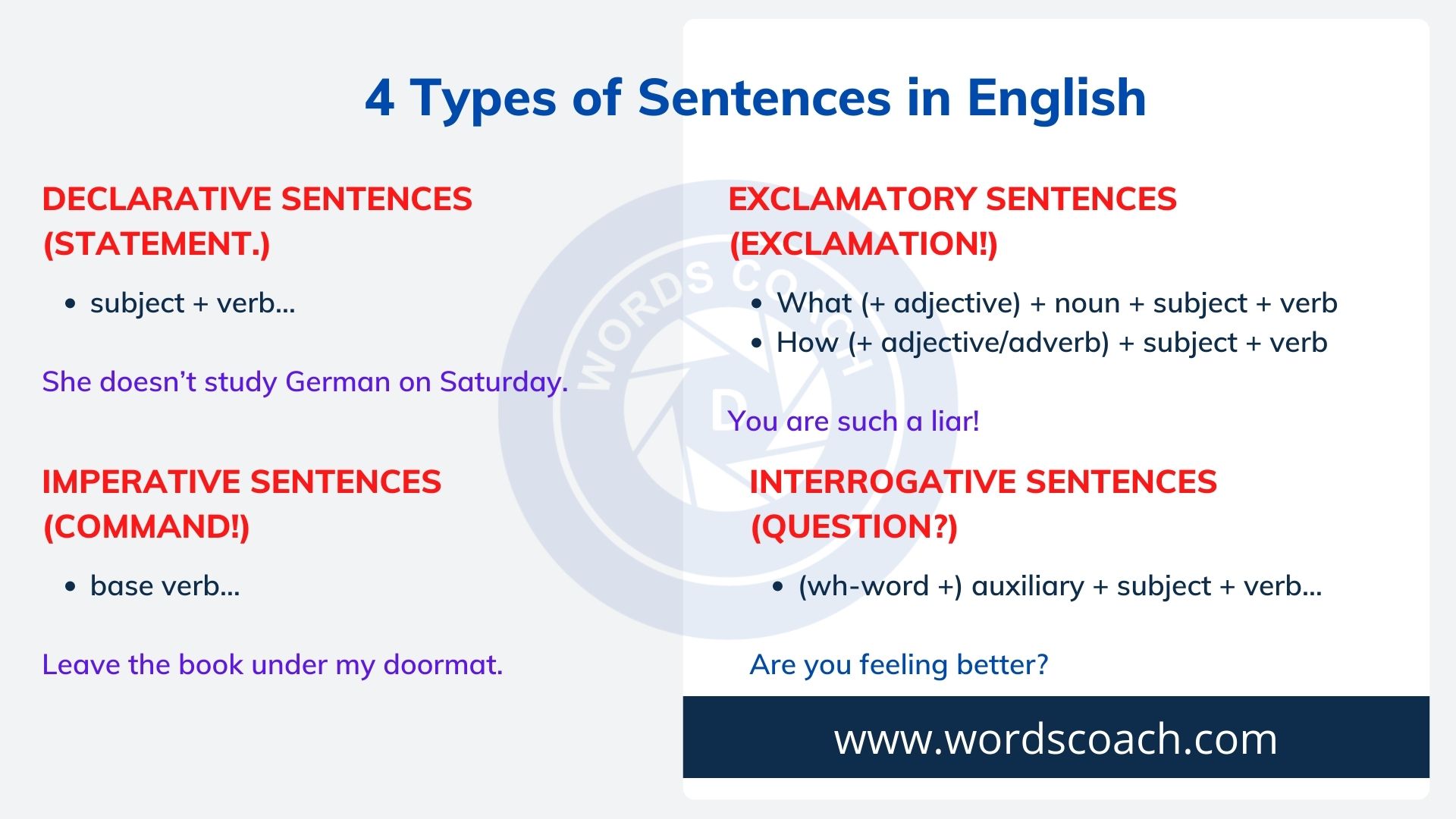
4 Types of Sentences in English
Types of Sentences in English. There are four types of English sentence, classified by their purpose:
1. Declarative Sentences (statement.)
2. Exclamatory Sentences (exclamation!)
3. Imperative Sentences (command!)
4. Interrogative Sentences (question?)
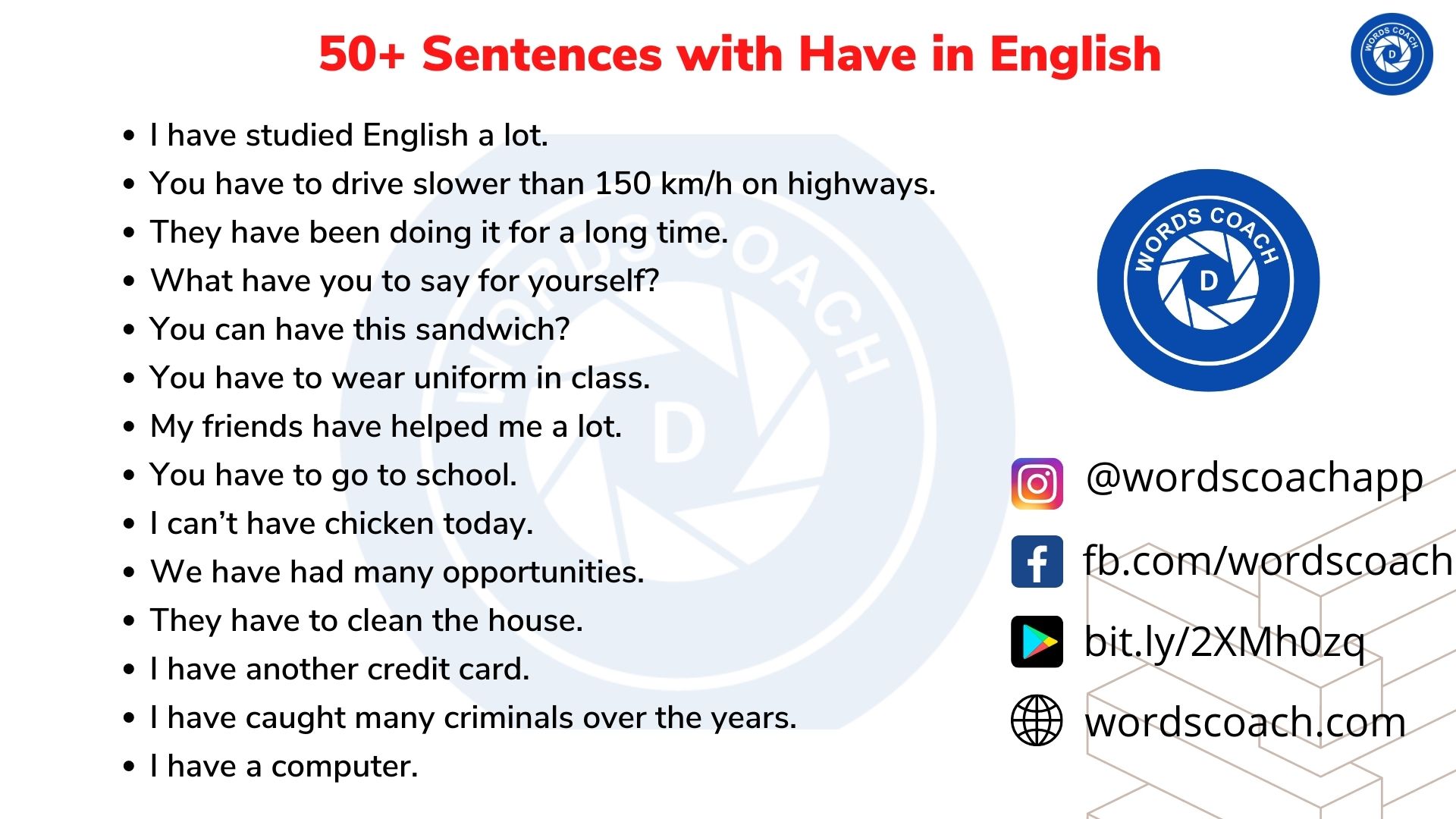
50+ Sentences with Have in English
Sentences with have, Sentences with have in English and make the sentence, Sentences with have in English and Spanish, Sentences with have in English British council
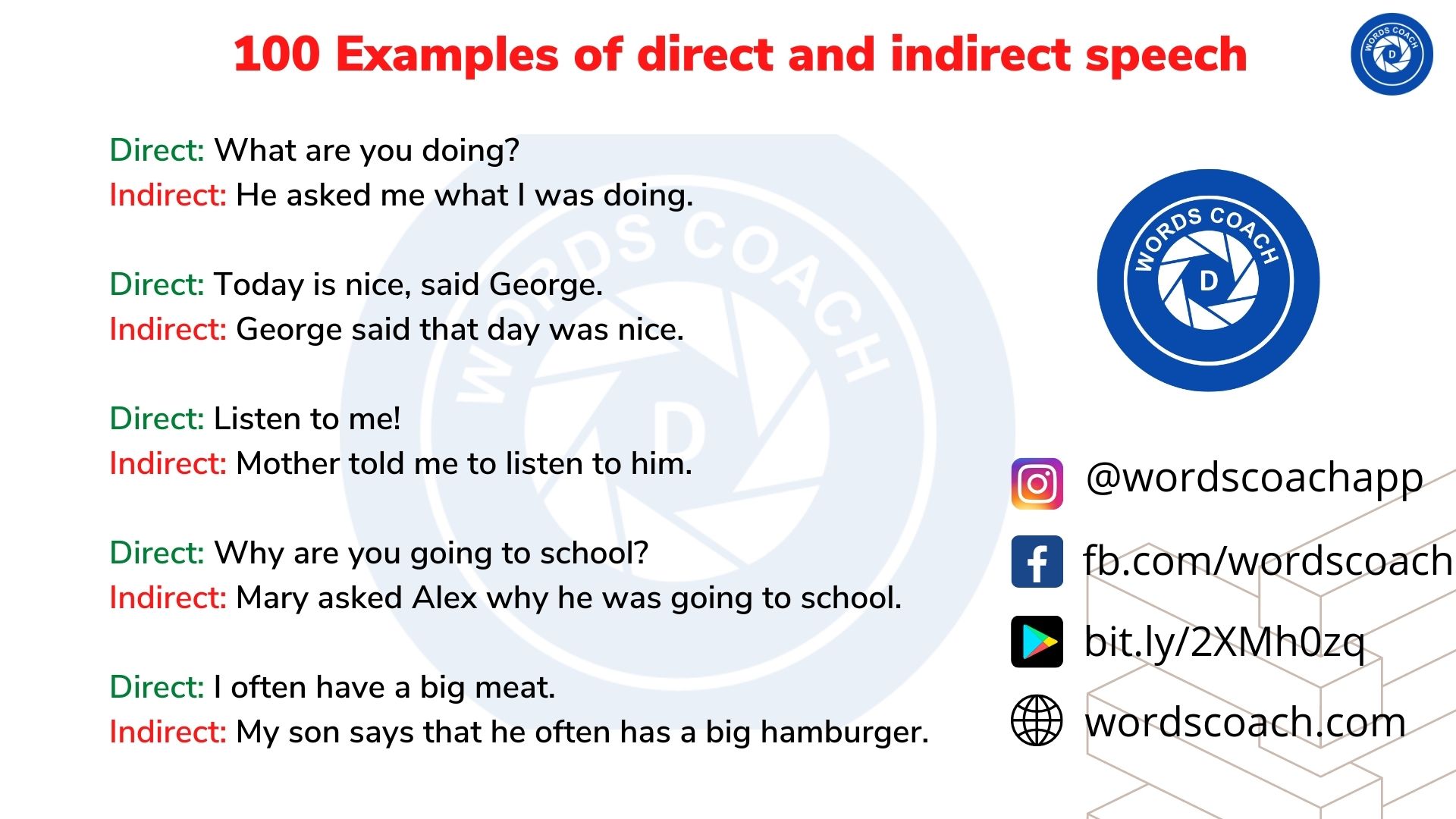
100 Examples of direct and indirect speech
100 examples of assertive sentences in direct and indirect speech, 30 examples of direct and indirect speech assertive sentences, 50 examples of direct and indirect speech exclamatory sentences
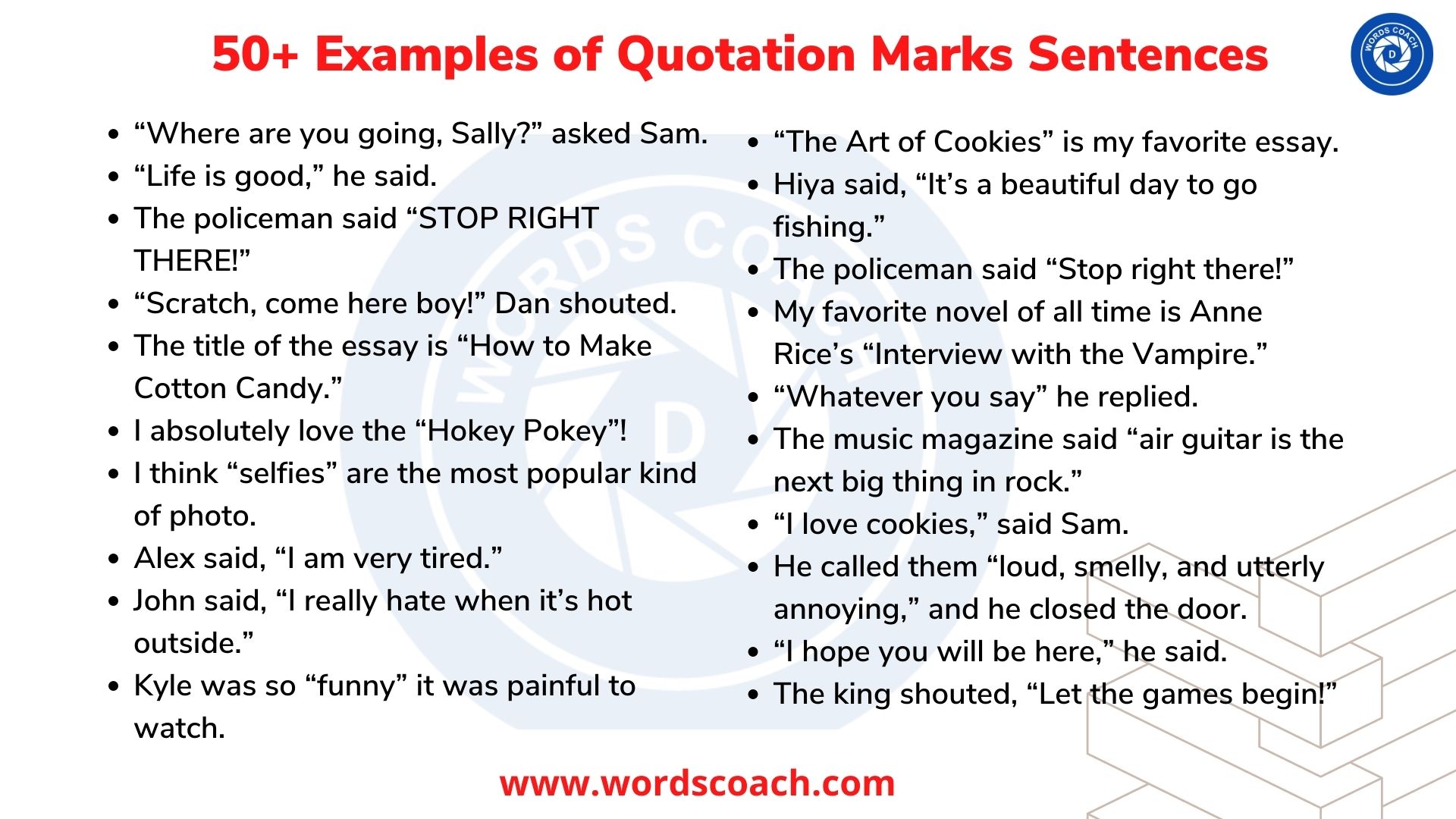
50+ Examples of Quotation Marks Sentences
Quotation marks are punctuation marks used in pairs in various writing systems to set off direct speech, a quotation, or a phrase.
50+ Examples of Quotation Marks Sentences
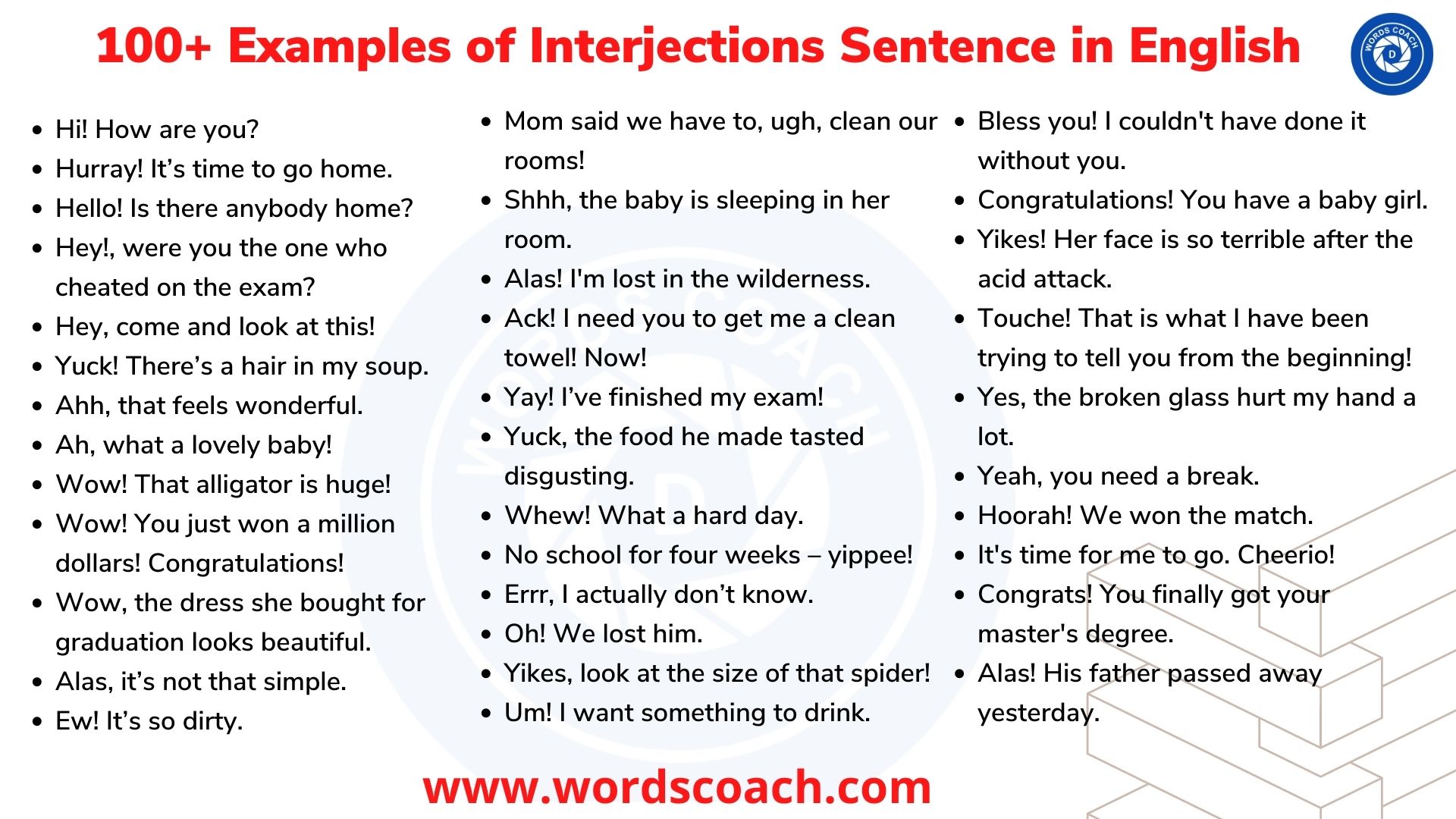
Interjections Sentence: 100+ Examples of Interjections Sentence in English
100+ Examples of Interjections Sentence in English, Example of interjections used in a sentence, Examples of interjections in a sentence
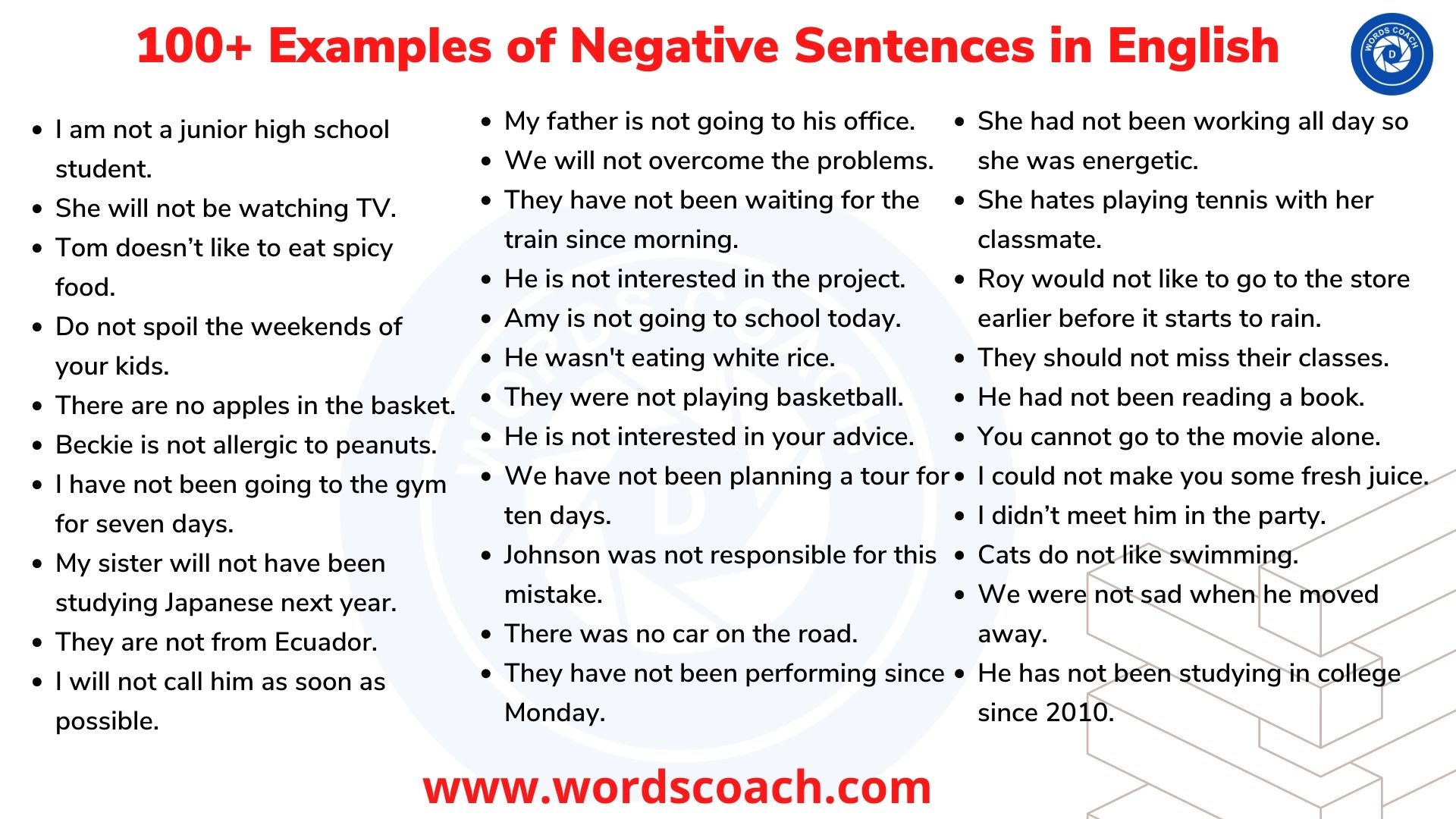
100+ Examples of Negative Sentences in English
What are Negative Sentences? A negative sentence (Examples of Negative Sentences) is the type of sentence that rejects a statement in that sentence itself. Negative sentences are decisive articulations i.e they transfer data accepted to be valid. Examples of Positive Sentences in English 100+ Examples of Negative Sentences in English Here are some common examples […]
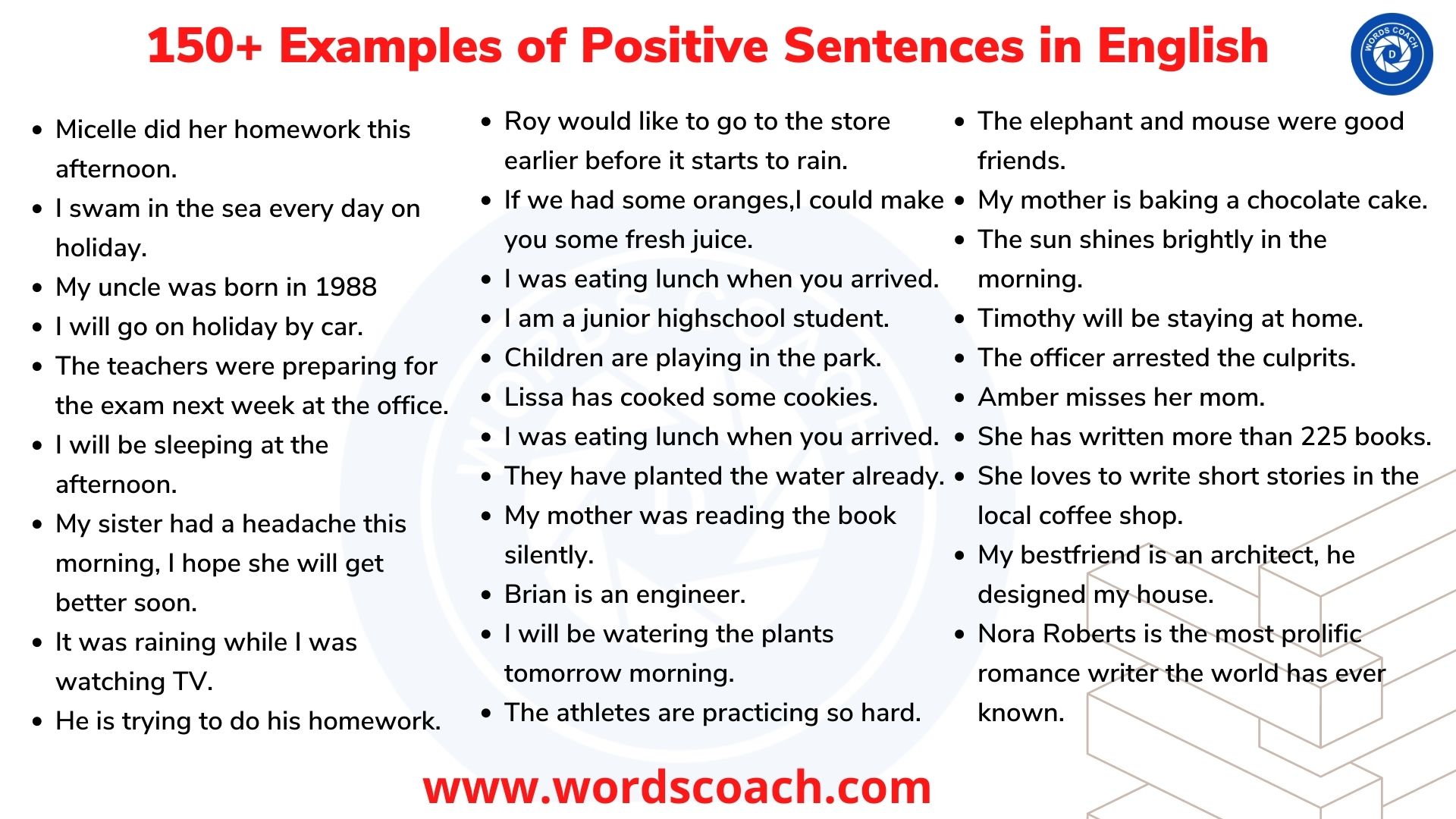
150+ Examples of Positive Sentences in English
150+ Examples of Positive Sentences in English
What are Positive Sentences?
– Positive sentences are those which do not have any negative words like – not, never, etc. Positivity usually means something that is good. However, in English grammar, positive sentences are simply the type of sentences that state something that is factual.
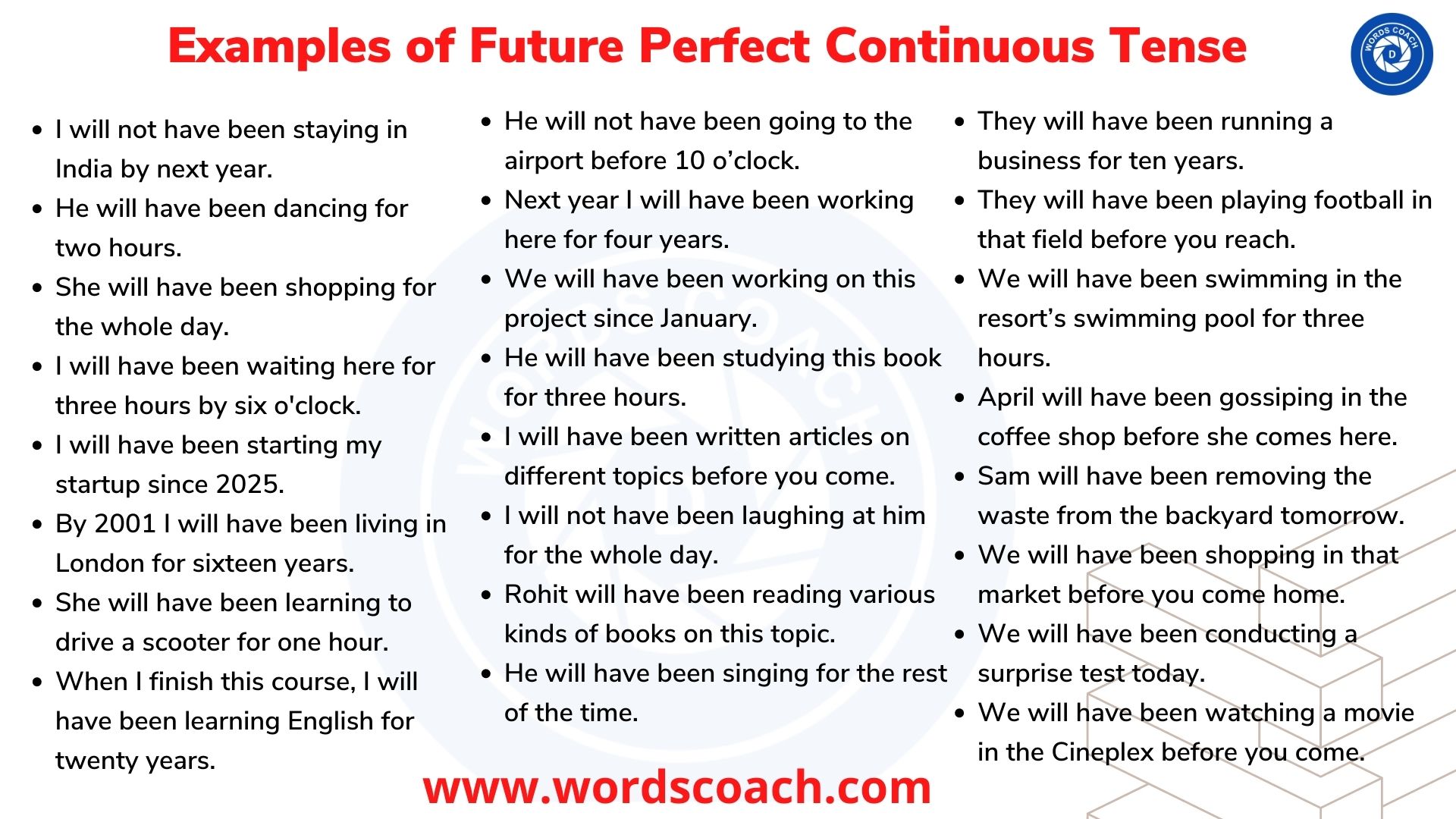
Examples of Future Perfect Continuous Tense
Future Perfect Continuous Tense
Future perfect continuous tense refers to an ongoing action that will take place prior to a certain time in the future. The structure of this tense is will have + been + main verb + ing.
Examples of Future Perfect Continuous Tense
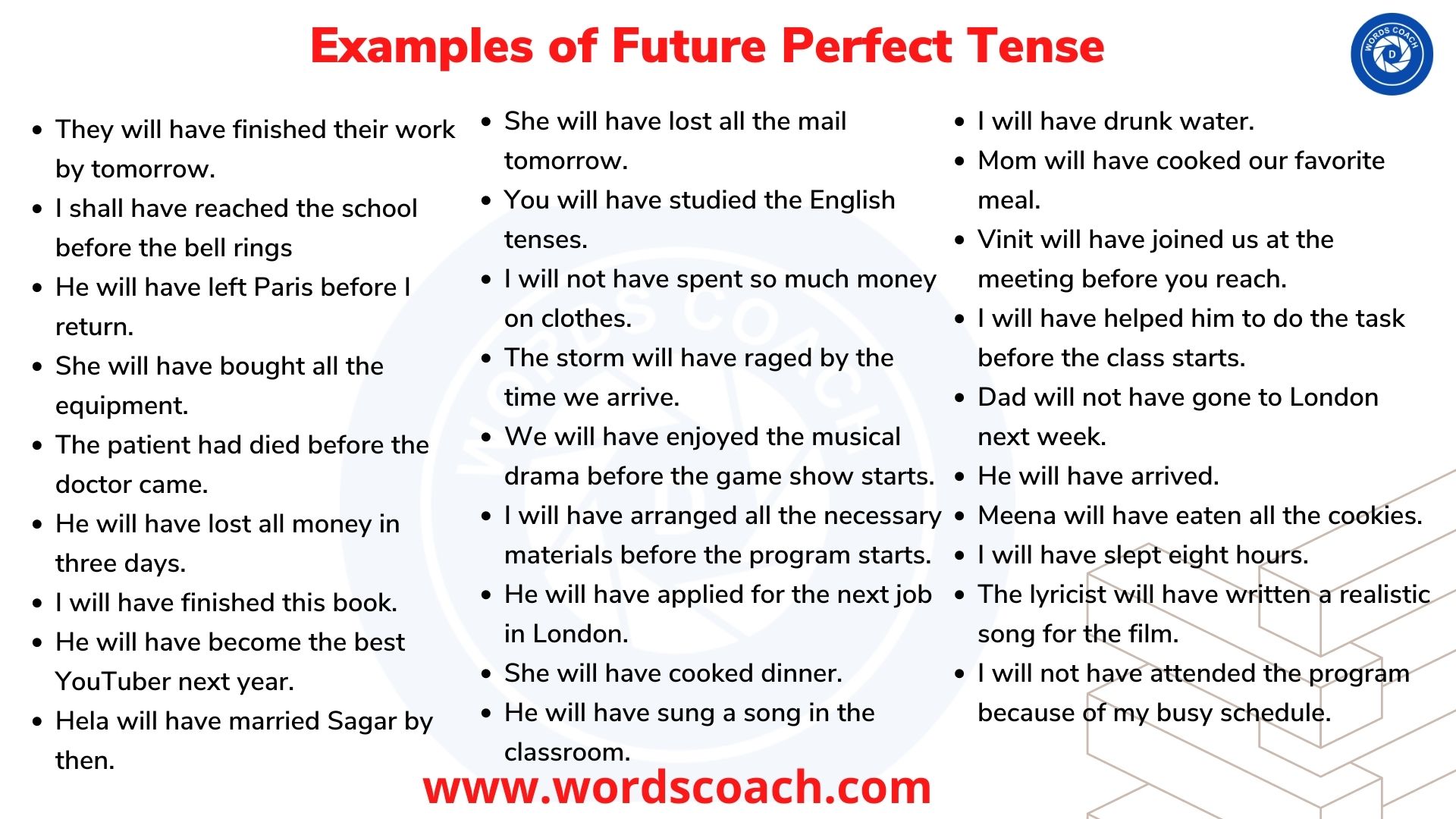
Examples of Future Perfect Tense
Future Perfect Tense
Future perfect tense is used to describe an action that precedes another in the future. The structure of this tense is will/shall + have + main verb + ed or en.
Examples of Future Perfect Tense
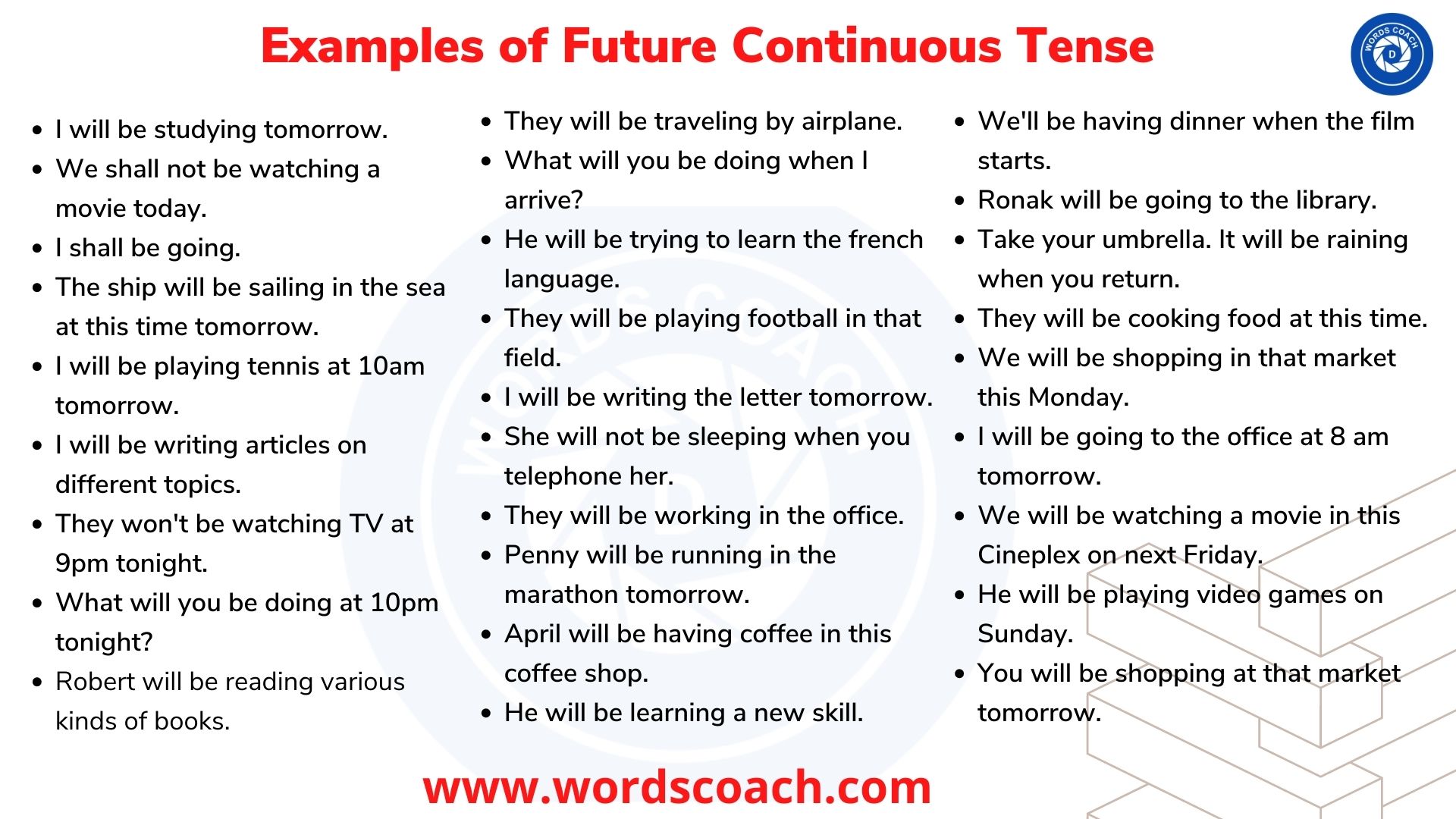
Examples of Future Continuous Tense
Future Continuous Tense
Future continuous tense describes an action that is taking place in the present and will continue taking place in the future also. The structure of this tense is will be/shall be + main verb + ing.
Examples of Future Continuous Tense
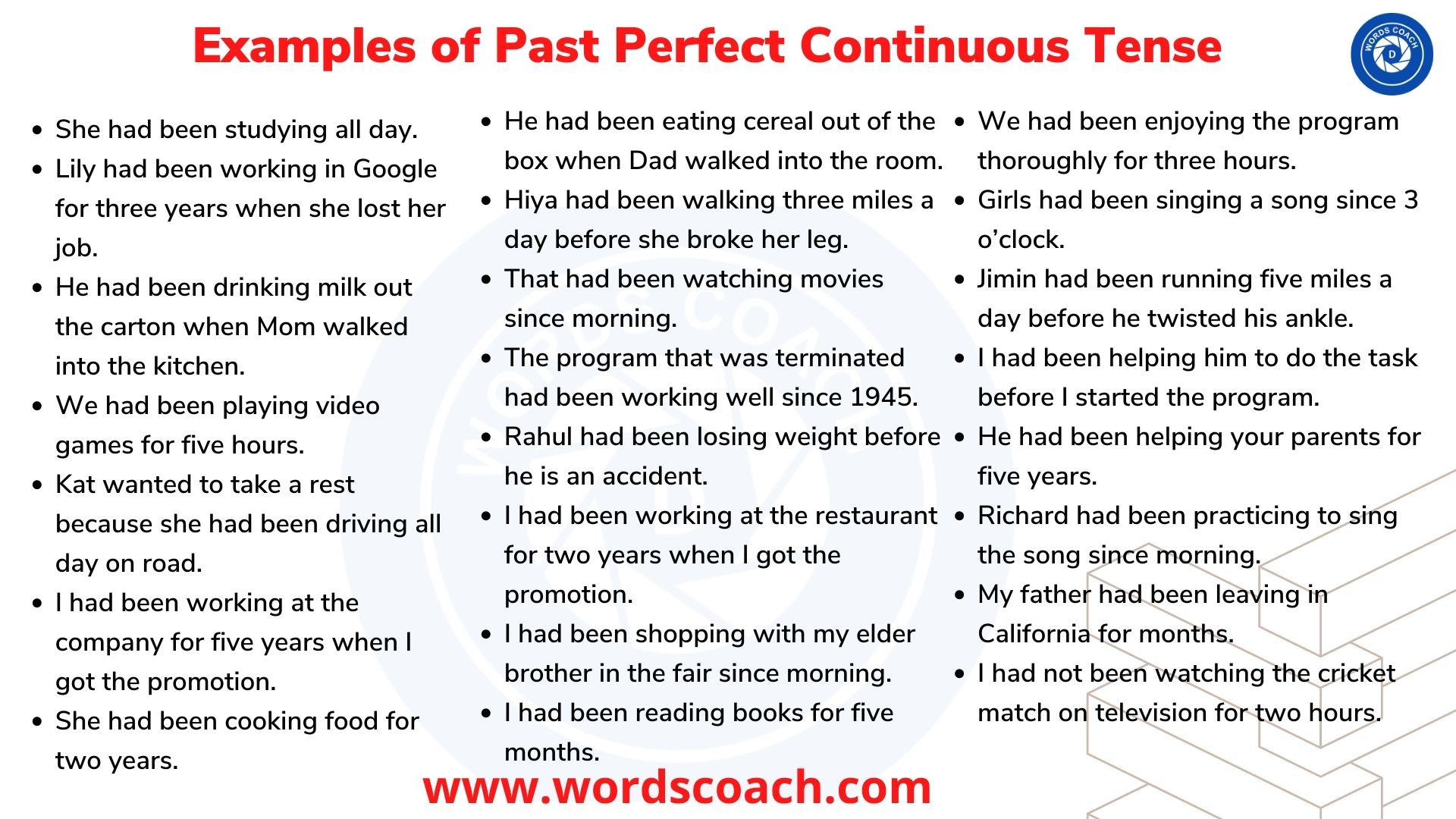
Examples of Past Perfect Continuous Tense
Past Perfect Continuous Tense:
Past perfect continuous tense describes an ongoing action in the past that is completed before another action takes place in the past. The structure of this tense is had + been + main verb + ing.
Examples of Past Perfect Continuous Tense
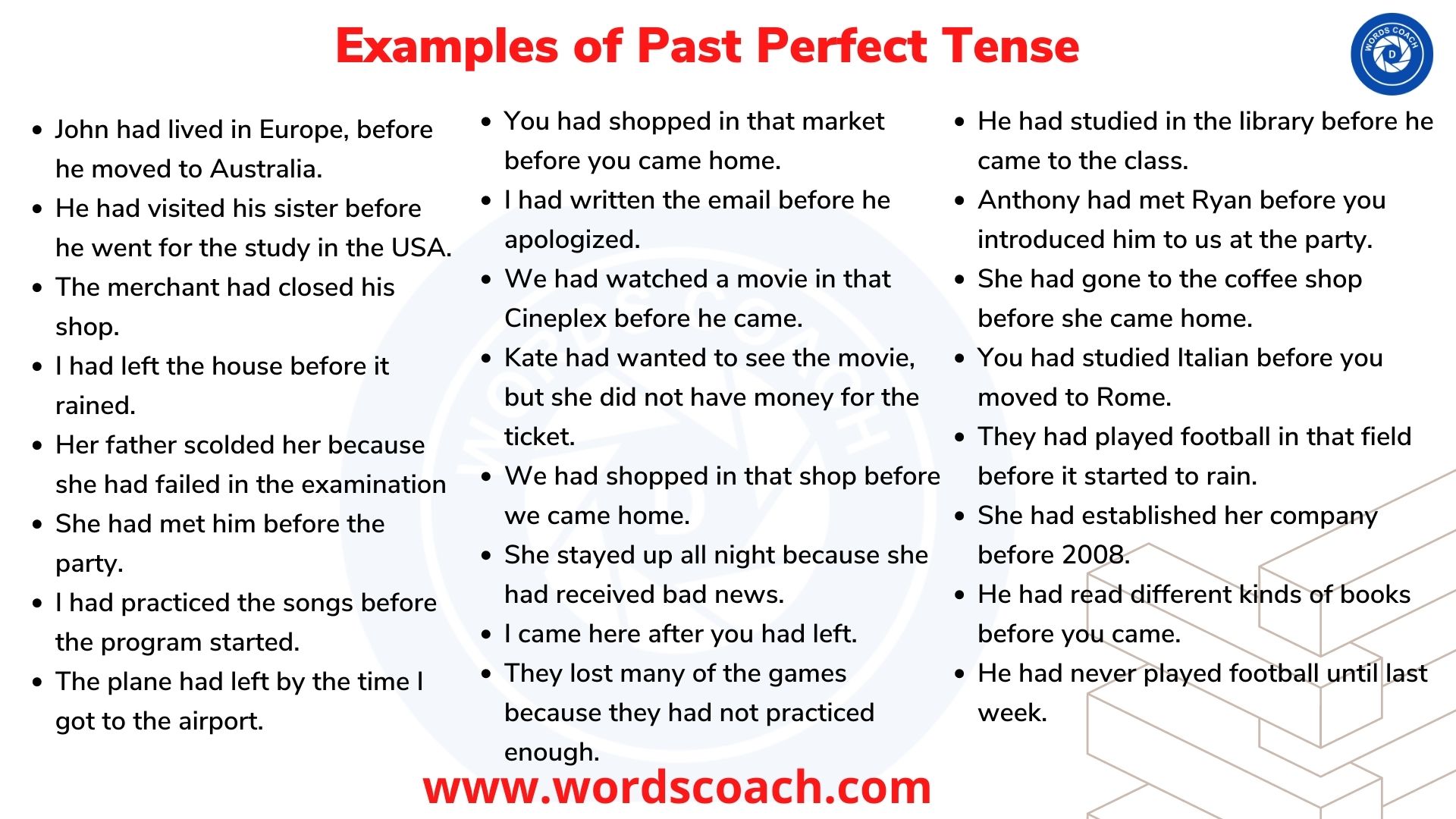
Examples of Past Perfect Tense Sentences
Past Perfect Tense
Past perfect tense refers to an action that leads up to another in the past. The more contemporary past event is expressed in the simple past, and the earlier past event is expressed in the past perfect.
Examples of Past Perfect Tense Sentences
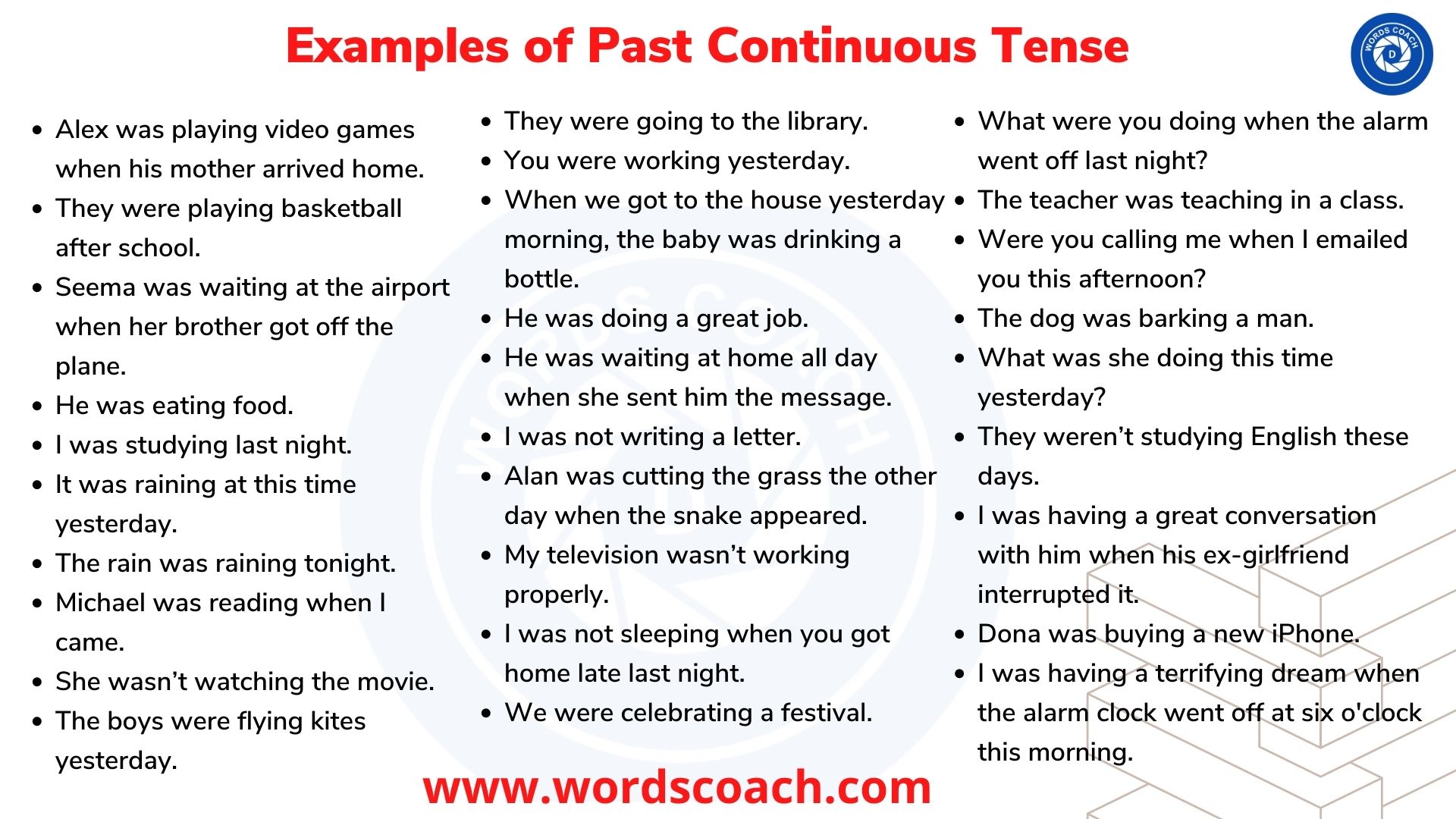
Examples of Past Continuous Tense
Past continuous tense describes in progress action in the past when another past action takes place. The structure of this tense is was/were + main verb + ing.
Examples of Past Continuous Tense
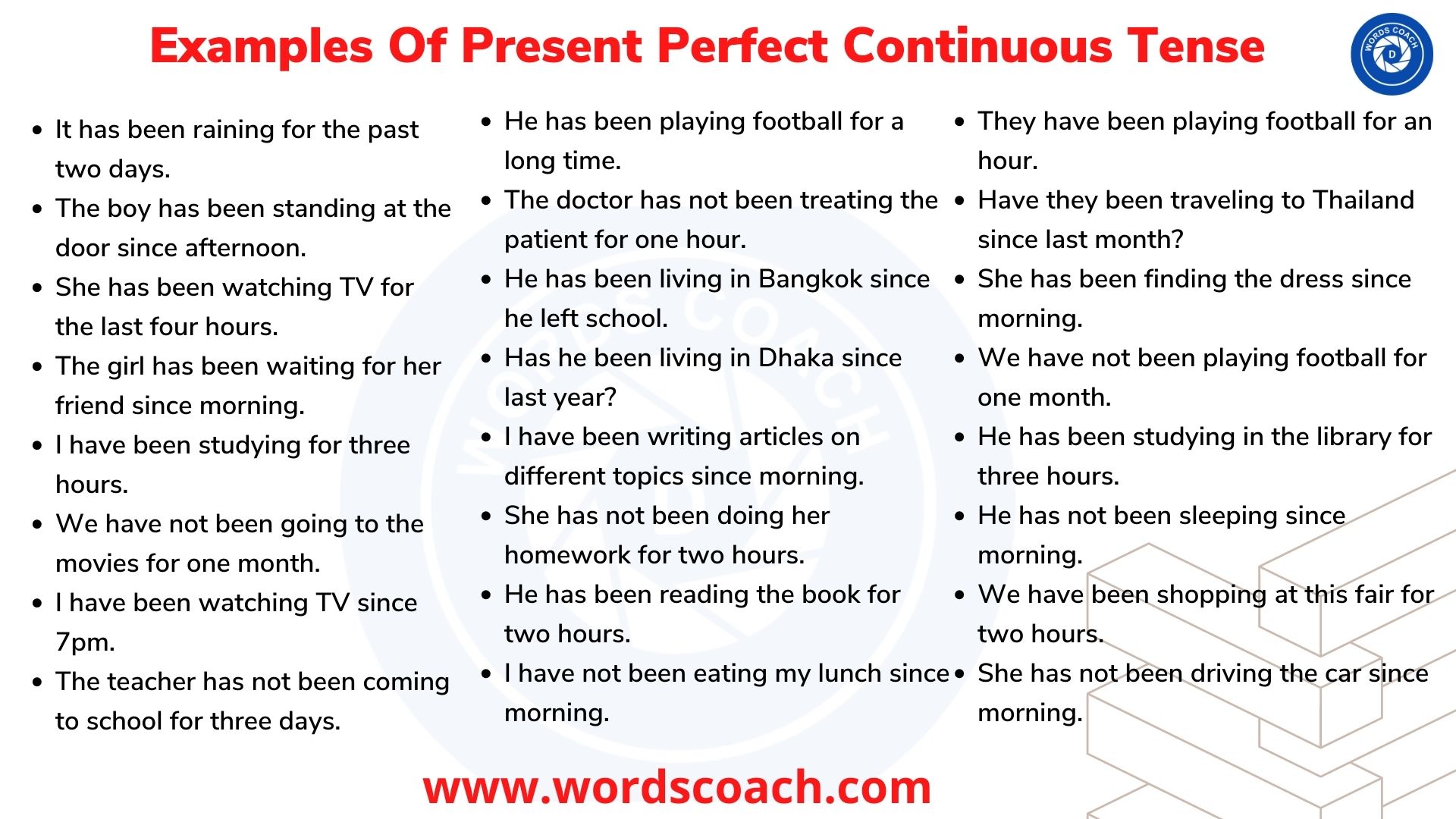
Examples Of Present Perfect Continuous Tense
Present perfect continuous tense depicts an action that started in the past, is continuing at present, and may continue in the future. The structure of this tense is has/have + been + main verb + ing.
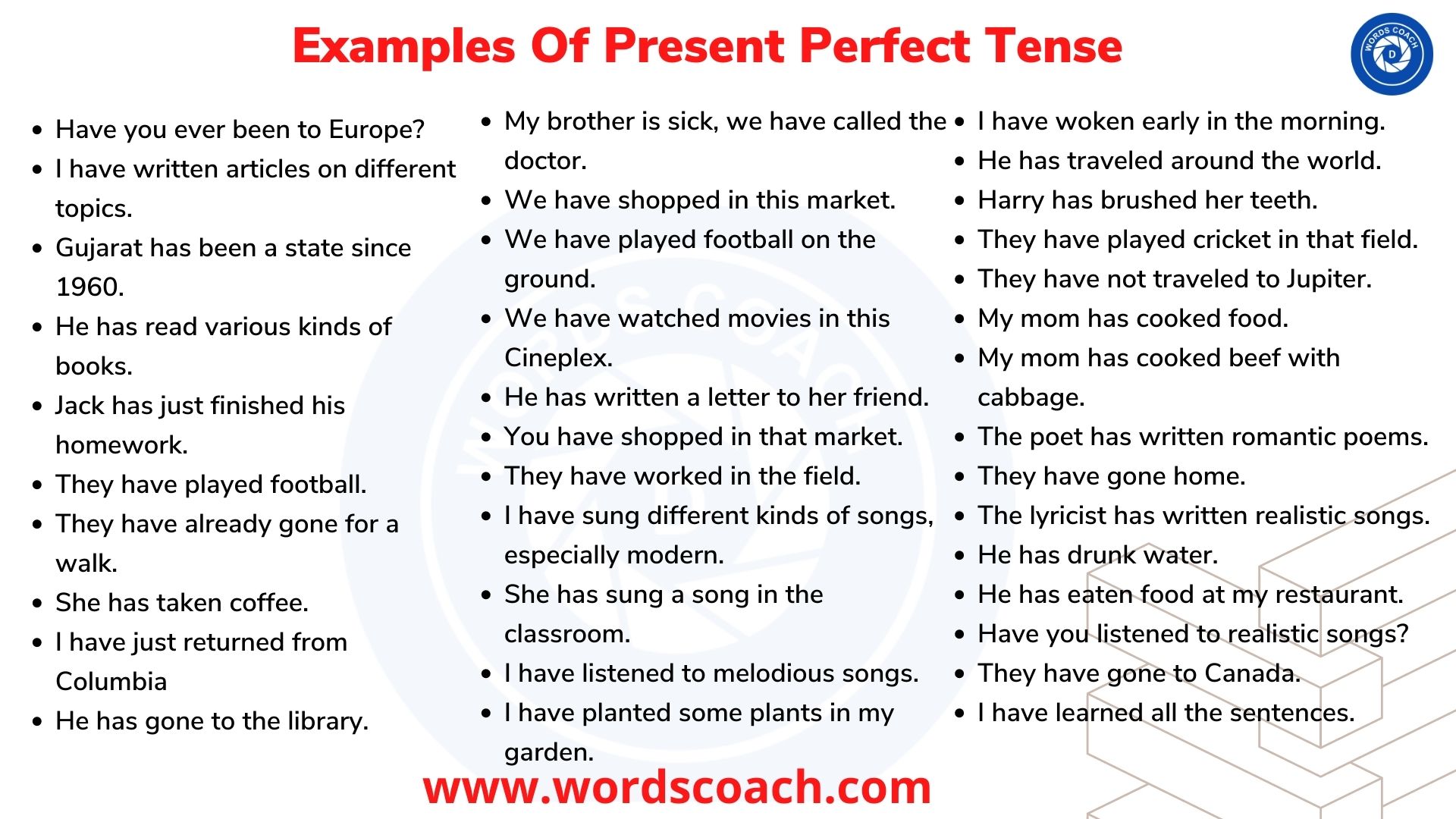
Examples Of Present Perfect Tense
Present perfect tense is used when we have to describe an action that has been completed in the immediate past or that occurred at an indefinite time in the past, or that began in the past but continues in the present.
Examples Of Present Perfect Tense
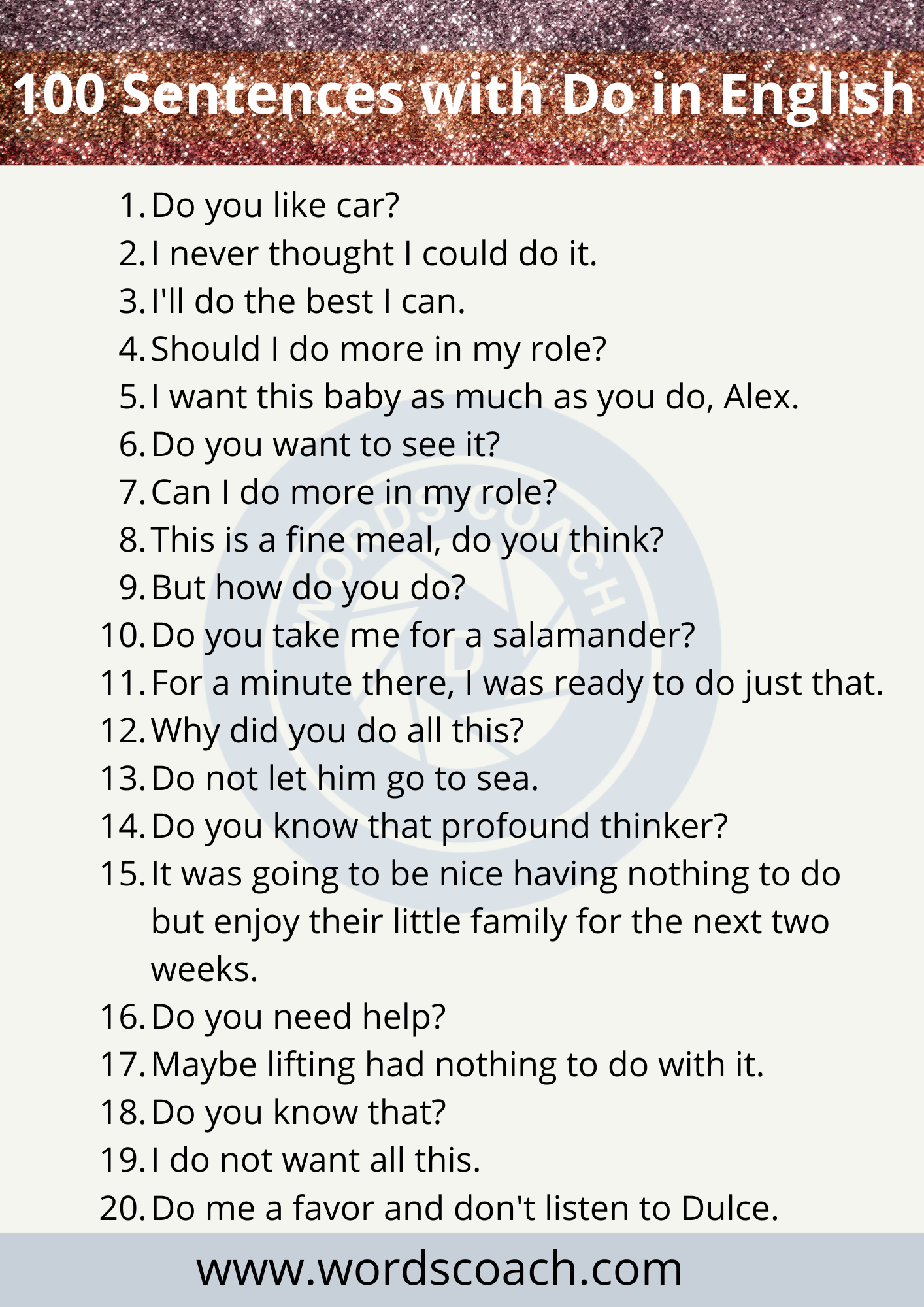
100 Sentences with Do in English
100 Sentences with Do in English
Do: Used before a verb (except be, can, may, ought, shall, will ) in questions and negative statements.
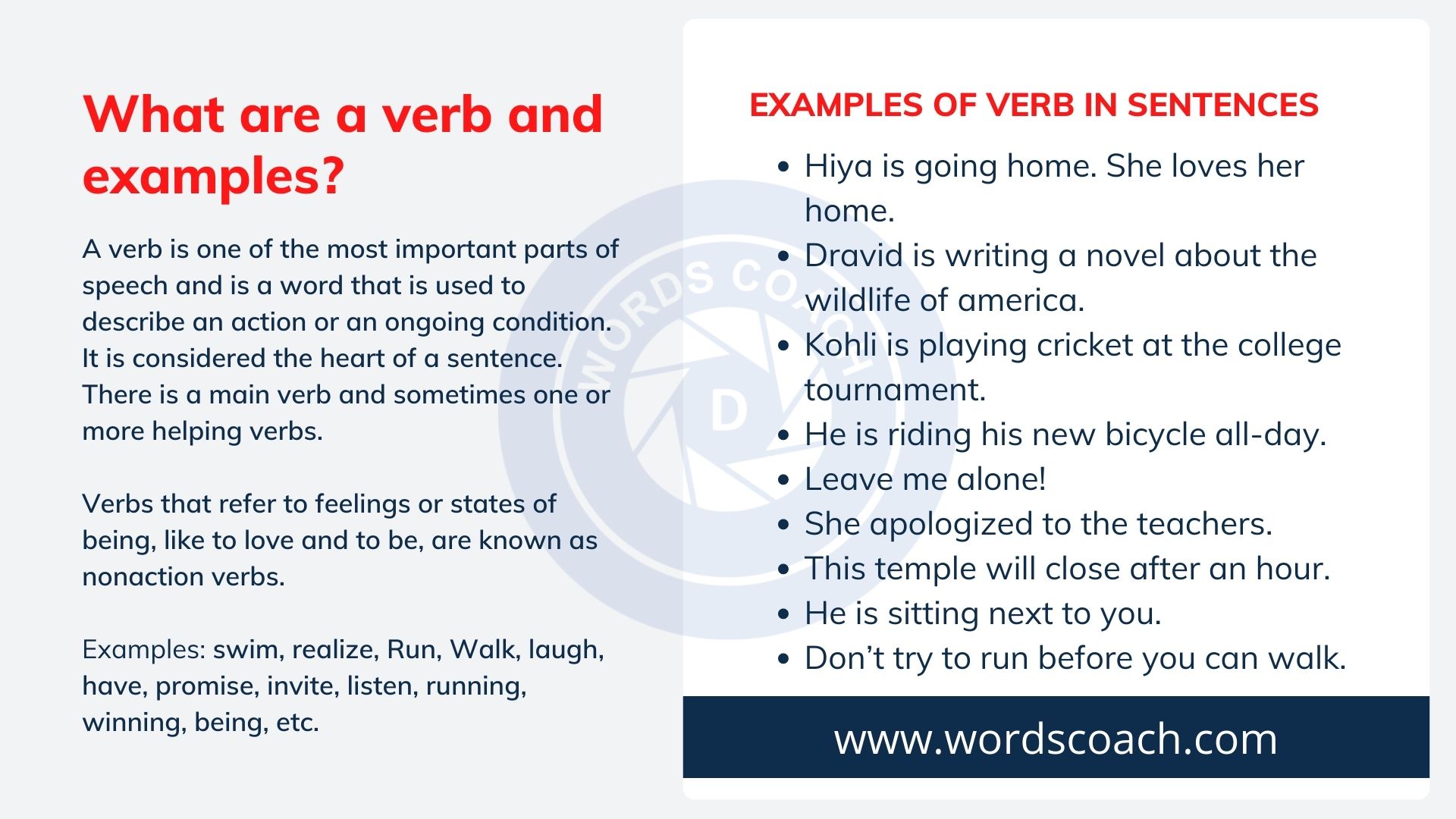
20 Examples of Verb in Sentences
What are a verb and examples?
A verb is one of the most important parts of speech and is a word that is used to describe an action or an ongoing condition. It is considered the heart of a sentence. There is a main verb and sometimes one or more helping verbs.
Examples of Verb in Sentences
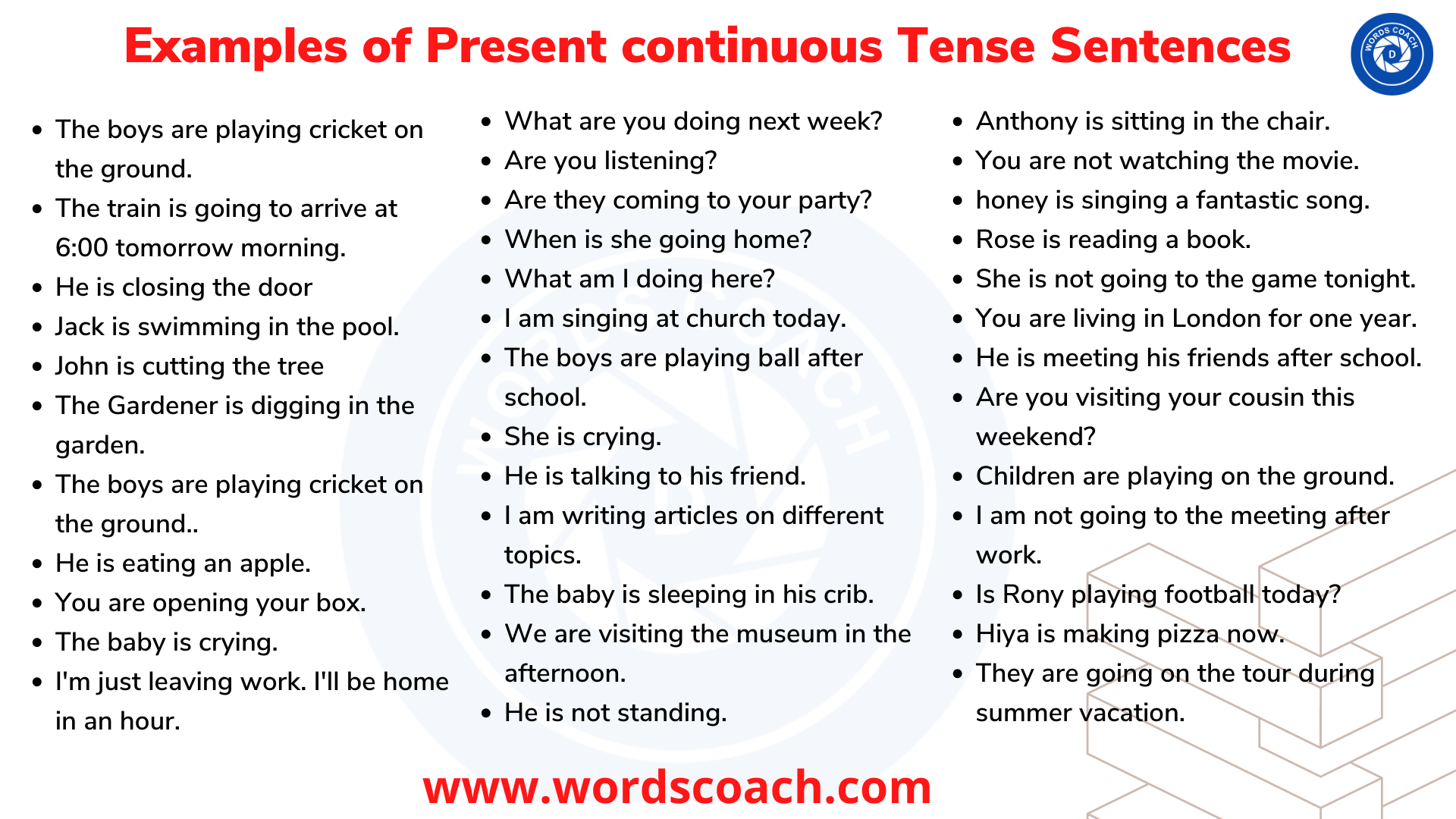
Examples of Present continuous Tense Sentences
Present Continuous Tense sentences examples, 50+ sentences of Present Continuous Tense.
1. The boys are playing cricket on the ground.
2. The train is going to arrive at 6:00 tomorrow morning.
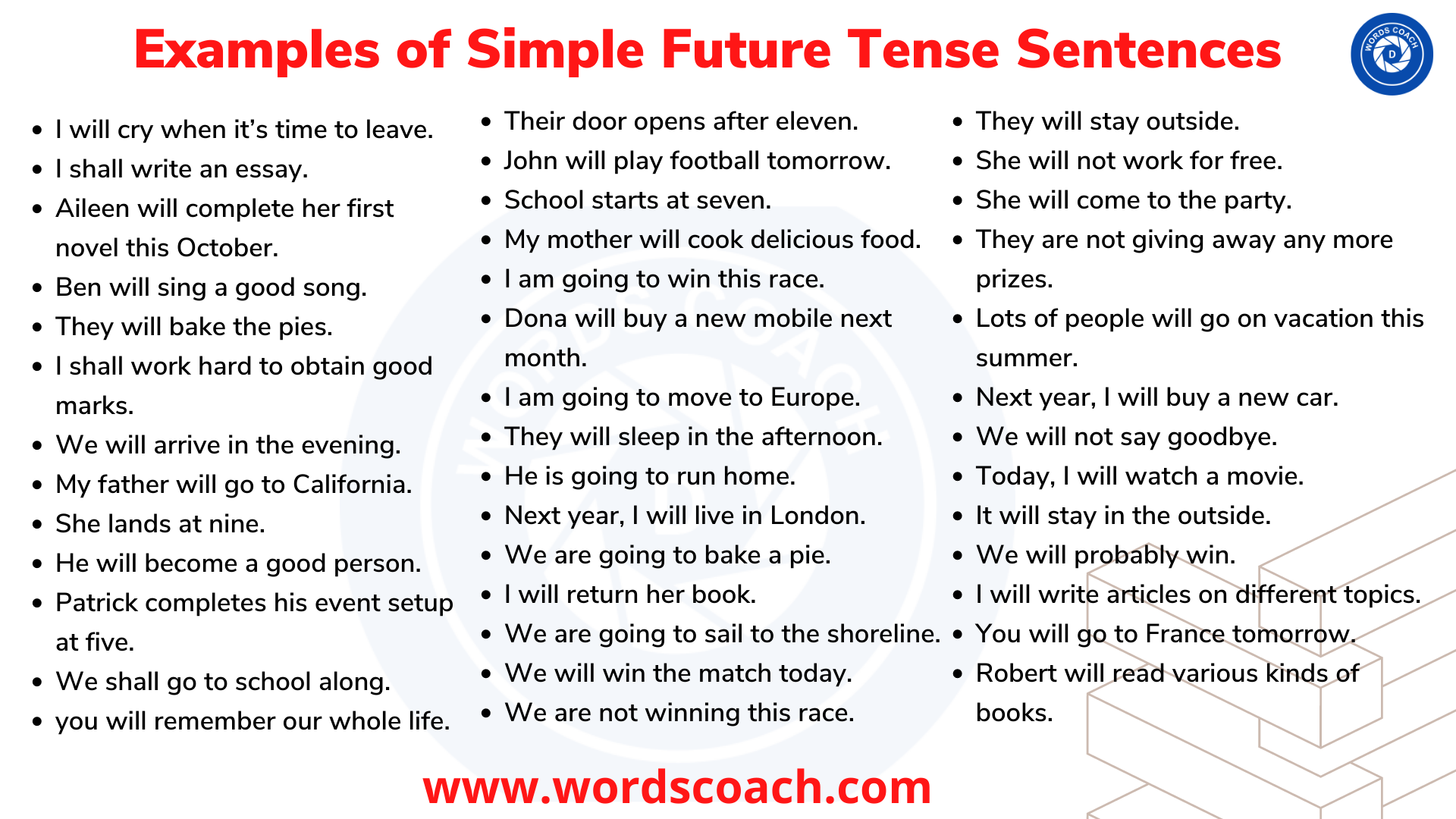
Examples of Simple Future Tense Sentences
Simple Future Tense sentences examples, 50+ sentences of Simple Future Tense.
1. I will cry when it’s time to leave.
2. I shall write an essay.
3. Aileen will complete her first novel this October.
4. Ben will sing a good song.
5.They will bake the pies.
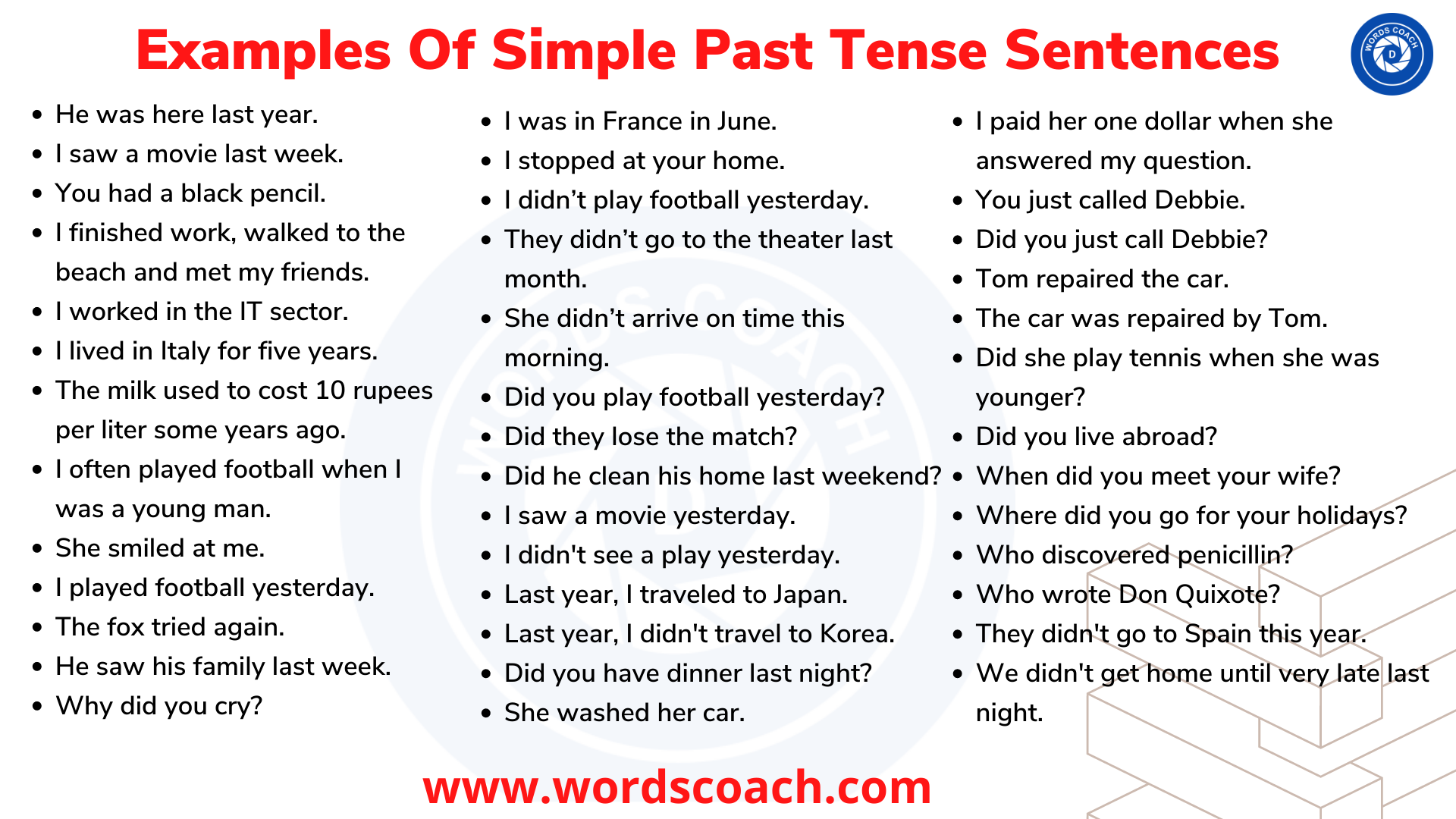
Examples Of Simple Past Tense Sentences
Simple past tense sentences examples, 50+ sentences of simple past tense.
1. When I paid her one dollar, she answered my question.
2. She worked at the movie theater after school.
3. They never went to school, they always skipped class.
4. She was shy as a child, but now she is very outgoing.

